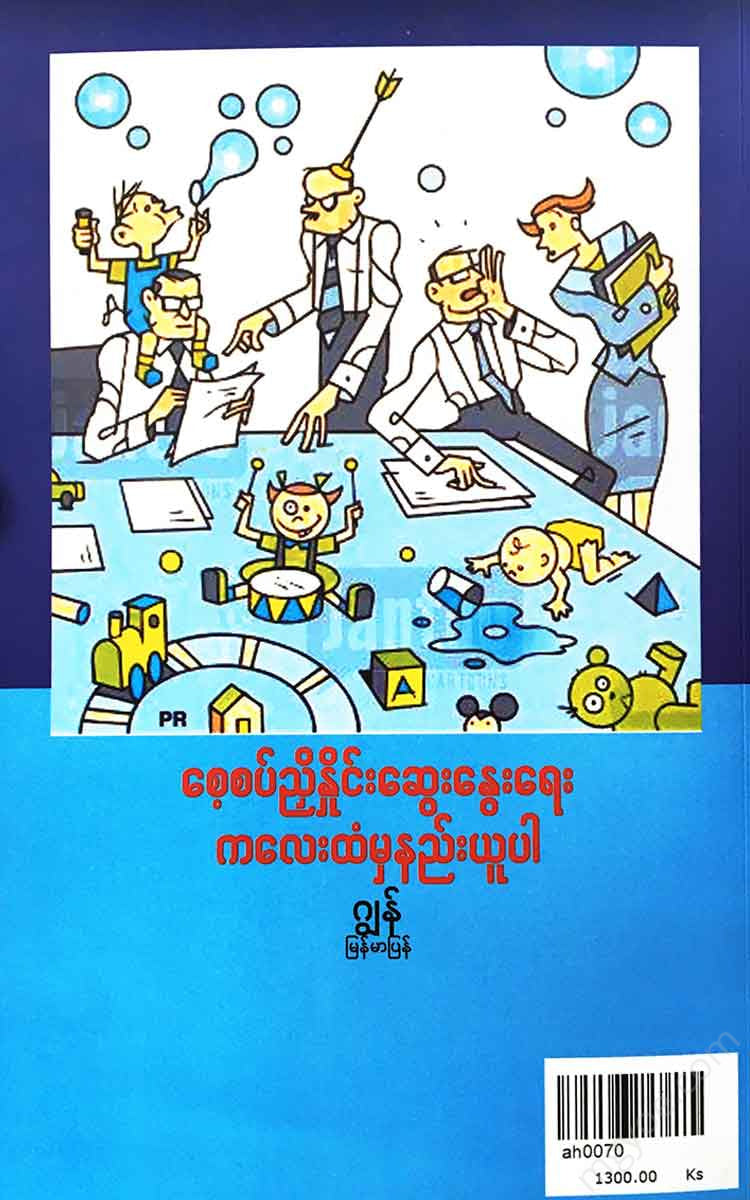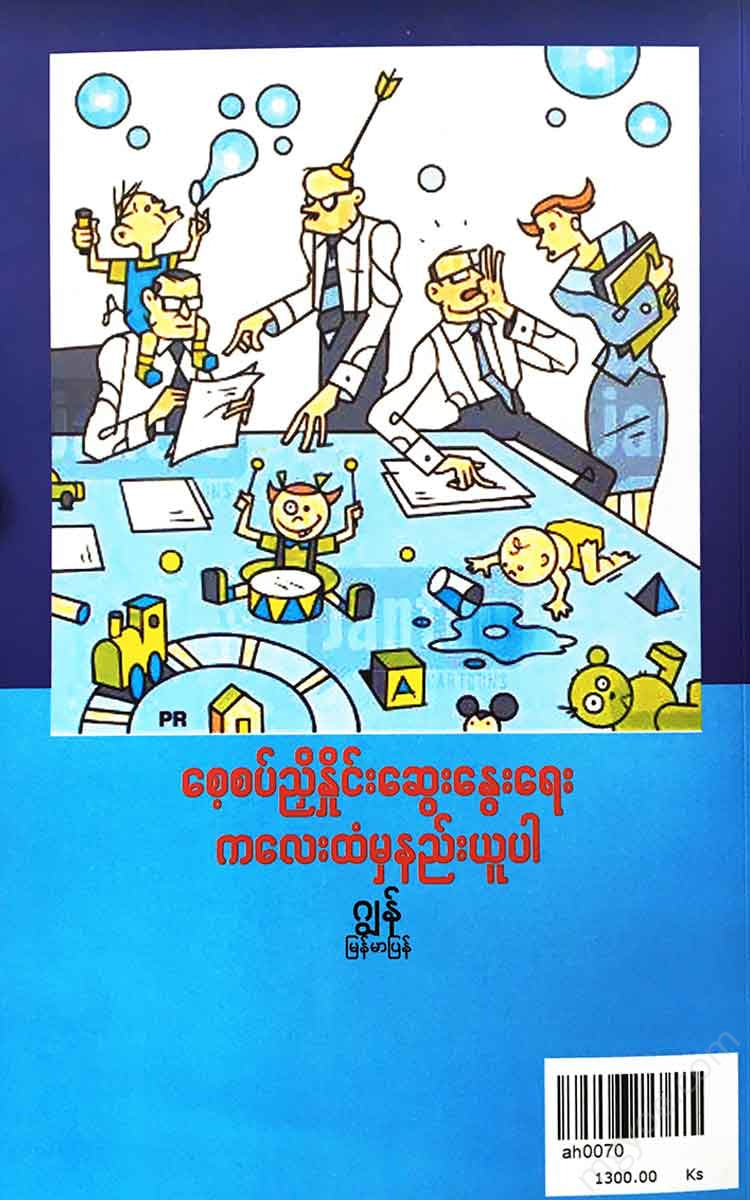စိတ်ကူးချိုချိုစာပေ
John - Learn from the Negotiation Kid
John - Learn from the Negotiation Kid
Couldn't load pickup availability
Introduction
"Innocent and cute child," "cute little one," "sweetheart," and "lovely little one" are just some of the nicknames that come to mind when we parents think about our children.
Just as parents give their children affectionate and affectionate names based on their feelings, they also give their children the appropriate labels for their innate behavior, talents, temperament, and qualities. For example, they label their children as “stubborn,” “not easily yielding” (in modern parlance, “strong-willed,” “manipulatory,” “striving to succeed” (persistent), etc. When arguments arise between parents and children, sometimes the child is rightfully victorious, but some parents are unwilling to acknowledge or praise their child for being right. This can lead their children astray.
Parents should not treat their children as if they are still in their childhood and do not know anything, nor should they mistakenly view their children as insignificant. In fact, our children and young people are all the best negotiators in the world. When children try to get what they want in the right way, parents sometimes have to give in, even if they are reluctant. Parents cannot ignore the fact that children have amazing abilities, even though they have very little experience. It is especially important to remember that children have the ability to negotiate.
If you are able to negotiate like a child, you will gradually develop your skills in negotiations until they become practical and satisfying for your life.
If you learn to negotiate like a child, you will gain the ability to practically get anything you want.
Key ways to negotiate like a child
To help you recall your childhood experiences and refresh your brain's ability to negotiate, go to playgrounds where children are often present and watch them imitate the following behaviors (ways) that they do. You will then gain important skills for negotiating skills.
- Get angry and throw a tantrum.
- Ask questions to someone who nods their head easily and answers.
- Compete on one of two opposing teams.
- Try to be sympathetic.
- Stop the game for you.
- Change the legal rules.
- Request a bribe.
- Make it slow and slow to gain time. This will waste time for both the other person and the other team.
- Win by having compassion.
- Act irrationally.
- Be concerned about the side you are vulnerable to.
- Make weak promises.
- Win in a clever and charming way.
- Take your toys and go home.
- Follow the rules in the letter.
- Be pleasant and friendly.
- Be honest.
- Try to please the other person in some way.
- Make the other person think you've won.
- Stay connected with your gang friends.
- “My father will beat your father”
Warn other people.
Every child fundamentally understands that negotiation is an effort made towards a goal or direction.
So you need to learn what methods a child uses to negotiate a matter, whether it's targeting a mother, father, teacher, or friend.
The term "child" encompasses everything from very young children to very old children.
Studies of children's negotiation skills have shown that some children are able to negotiate with adults. Depending on the individual intelligence and thinking abilities of children, they can use strategies that are within their capabilities.
Children naturally strive to achieve what they want and need in whatever way they can, whether their strategies succeed or fail.
Children are often happy when their efforts are successful, but they also tend to be frustrated when they don't get what they want.
But this situation doesn't last long for every child, and within a moment, both their happiness and frustration are forgotten.
The jealousy, resentment, and resentment that every child harbors in their mind never last long and fade away. Children have the ability to quickly pull their minds away from the good and bad of what has happened.
We adults don't have the ability to forget bad or good feelings like children do. The things we forget the most are our cell phones, car keys, and wallets.
It has been observed that young children are curious, attentive, and able to learn and remember things, so they have a little bit of knowledge about many things and are able to negotiate.











